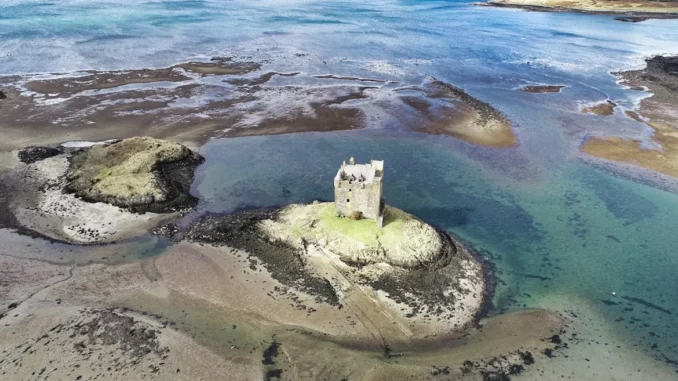
During a recent conversation with Emily Lawson, an environmental consultant based on the Isle of Wight, it quickly became evident that her passion for sustainable energy is both profound and infectious. Emily has been deeply engaged with the developments of the Perpetuus Tidal Energy Centre (PTEC), an ambitious project that has captured the attention of both the local community and the broader renewable energy sector. Our discussion traversed the complexities of this initiative, the community’s varied responses, and the potential future it heralds for tidal energy on the Isle of Wight.
Air quality is vital in planning. See how Focus360 Energy can assist.
Emily’s experience with numerous renewable energy projects offers her a unique perspective on PTEC. “PTEC is quite unique,” she explained, her enthusiasm palpable. “It’s England’s leading multi-megawatt tidal stream energy generation project. The potential to power a third of the homes on the island with clean energy is substantial. It’s a project that could set a precedent for similar initiatives across the UK.” This vision is contingent upon the Isle of Wight Council’s decision on a revised application from PTEC, which seeks to modify existing conditions to enable a phased development approach. The proposed changes pertain to onshore components, including a substation, access and parking modifications, and the cabling necessary to connect marine electricity export cables to the substation.
The council’s role in this decision is undeniably complex. Emily acknowledged this challenge, noting, “On one hand, there’s a clear mandate to support renewable energy initiatives. However, they also need to ensure that the development respects local ecology and community concerns.” To navigate this, the council has recommended approval of the revised application with a Biodiversity Mitigation Contribution of £19,800, ensuring that environmental impacts are thoughtfully managed. This decision has sparked public debate, with some local residents expressing concerns regarding the potential ecological impact and the implications of altering planning conditions. Claire Spencer from Niton, for instance, argues that the pre-planning conditions were fair and should have been adhered to.
Emily recognises the validity of such concerns. “The council must balance economic, social, and environmental benefits against any potential adverse effects,” she stated. The phased approach to the project presents a pragmatic solution, allowing for monitoring and mitigation of impacts as they arise. The initial phase, known as “Commencement Works,” will establish the foundation for subsequent stages of development, ensuring that mitigation measures are implemented effectively and at the right times.
This phased strategy is pivotal for the project’s success. By dividing the project into manageable phases, PTEC can address challenges incrementally, allowing for adjustments and improvements along the way. This approach not only mitigates risks but also enhances the potential for a sustainable and successful outcome. Despite controversies, the economic benefits of PTEC are significant, promising job creation and stimulation of local businesses, an attractive prospect in the current economic climate.
Emily concurs that while economic advantages are substantial, they must not eclipse the necessity for environmental stewardship and community engagement. “The council’s decision should reflect a balance of these priorities,” she asserted. As our conversation neared its end, Emily shared her hopes for the future of tidal energy on the Isle of Wight. Her vision is that PTEC will serve as a model for future projects, demonstrating how renewable energy initiatives can harmoniously integrate with local communities and ecosystems. “It’s about finding harmony between progress and preservation,” she concluded.
Reflecting on our discussion, the complexity of the Isle of Wight Council’s decision-making process becomes apparent. The implications of their decision extend far beyond the local community, influencing broader conversations about renewable energy across the UK. As the tides of change approach, all eyes are on the Isle of Wight, eager to see the path it will chart in these evolving waters.


Be the first to comment